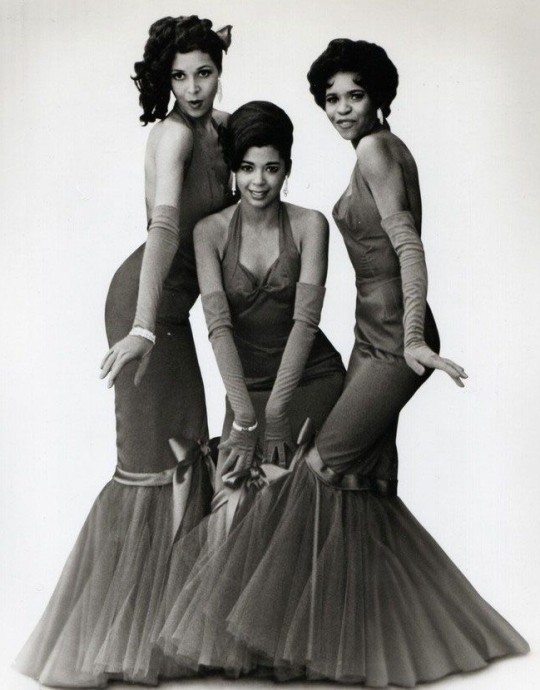#Lonette McKee
Text

Lonette Mckee (1970s)
114 notes
·
View notes
Text

#The Cotton Club#Richard Gere#Gregory Hines#Diane Lane#Lonette McKee#Bob Hoskins#James Remar#Nicolas Cage#Allen Garfield#Gwen Verdon#Fred Gwynne#Laurence Fishburne#Francis Ford Coppola#1984
6 notes
·
View notes
Text

The Cotton Club (1984). Meet the jazz musicians, dancers, owner, and guests (like gangster Dutch Schultz) of The Cotton Club in 1928-1930s Harlem.
Man, but Francis Ford Coppola knows how to direct a musical. The plot of this one's a bit all over the place, but the sequences where he throws story to the wind and leans into the energy of performance and the pace of the music are some straight up movie magic. Also I kind of wish the entire movie had been about Gregory Hines and Lonette McKee's characters. 7/10.
#the cotton club#1984#Oscars 57#Nom: Art Direction#Nom: Editing#Francis Ford Coppola#william kennedy#mario puzo#richard gere#gregory hines#Lonette McKee#diane lane#Nicolas Cage#Laurence Fishburne#1920s#america#american#drama#gangster#7/10
2 notes
·
View notes
Photo
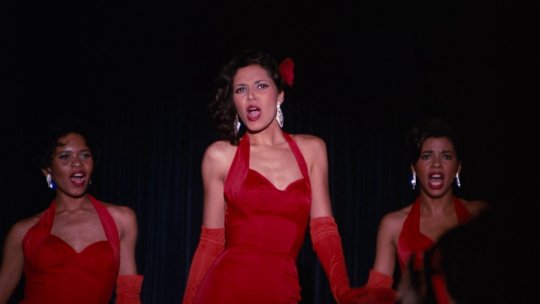
Sparkle (1976)
In 1959, three young women in Detroit’s Brewster-Douglass Housing Projects came together to form a musical trio. Sixteen-year-old Florence Ballard first convinced her best friend, Mary Wilson, fifteen, to join the group; Wilson then recruited Diana Ross, also fifteen, to join. On weekday evenings and weekends, the Primettes (the “sister group” to the Primes, later known as the Temptations) performed at local clubs and talent shows across Detroit, often covering hits from the Drifters and Ray Charles. The Primettes became a local sensation, winning a competition at the 1960 International Freedom Festival, and attracting the attention of Motown founder and executive Berry Gordy. Gordy signed the Primettes to a contract in early 1961, on stipulation they change their name. They became the Supremes.
One decade later in American cinema, the major Hollywood studios began experimenting with and quickly realized the box office appeal of blaxploitation. Blaxploitation is a type of exploitation film that features heavily – if not entirely – black casts and narratives, often aimed at an urban African-American audience. Generally, the subgenre concurrently provided a valuable avenue for black representation in Hollywood (on- and off-camera) and narratives concerning the community, all while upholding damaging white stereotypes about black people (i.e., violence, substance abuse, the hypersexualization of black women and highly polarized sexualization of black men with little in-between, etc.).
Released by Warner Bros., Sam O’Steen’s Sparkle, takes inspiration from the history of the original members of the Supremes. Sparkle arrived long after the breakup of the original Supremes (Ross departed in 1970; Ballard in 1967, but passed away two months before Sparkle’s release) and before the 1981 Broadway debut of Dreamgirls (which has a narrative with the same inspiration and story arc). Likewise, the film made its theatrical debut at a moment when blaxploitation was undoubtedly in decline. Repeated criticism from the National Association for the Advancement of Colored People (NAACP), the decision of some of the subgenre’s stars to pursue interests elsewhere, and impatience for blaxploitation’s typical low production values all contributed to that drop-off. Sparkle carries elements of blaxploitation (as do many films centered on African-American characters), but, despite its myriad of flaws, it represents a glimpse of the future of black American cinema.
It is 1958 in Harlem, New York City. The Williams sisters – youngest Sparkle (Cara; the obvious Diana Ross analogue), middle sister Delores (Dwan Smith), and eldest Sister (Lonette McKee; whose character starts out as the lead singer) – and friends Stix (Philip Michael Thomas) and Levi (Dorian Harewood) decide to take their church singing experience to form a musical quintet. The sisters’ mother, Effie (Mary Alice), works long hours as a maid, and has little time to tend to her children. Without much consideration other than requesting promises that the Williams daughters’ schoolwork remains their priority, she lends her blessing to their idea. Dubbing themselves the Hearts, a successful showing at a local talent competition has everyone imagining how they might have a future as professional musicians. Both young men drop out of the group – Levi so that he can take a job with a gangster named Satin (Tony King); Stix becomes the now-trio’s manager and co-composer. The trio, now known as Sister and the Sisters (I would have kept the original name), soon become the headline act at the sordid Shan-Doo Club. There, the malicious intentions of others and unfortunate incidents will challenge the fabric of the group and the bonds of sisterhood between Sparkle, Delores, and Sister.
At a brisk ninety-eight minutes, Sparkle wants to balance the narratives for Sparkle, Delores, and Sister as much as it can. But Joel Schumacher’s (1978’s The Wiz, 2004’s The Phantom of the Opera) screenplay and Howard Rosenman’s (1991’s Father of the Bride, 2017’s Call Me By Your Name) story serves no one particularly well. Given that the film is named after the youngest of the Williams sisters, it makes sense that Sparkle receives the most attention. However, the pedestrian dialogue – especially in the most heightened romantic and violent moments of the films – provides Irene Cara little to work with. And if the ostensible lead actress is ill-served by the screenplay, the situation is worse for everyone else. Sparkle’s storyline – despite a worthy message of how she cannot depend entirely on others to find happiness or success – lurches from one cliché to another, the typical rags-to-riches story executed more interestingly in scores of films that came before and after this.
The connections to Delores and Sister’s stories are likewise poorly handled and edited, with transitions too abrupt for any sort of reflection about the scene prior. We learn about Dolores’ interest in joining the civil rights movement, but this character detail has no depth despite its centrality to a crucial plot point. Sister’s eventual drug abuse and domestic (and potentially, sexual) abuse from her partner is entirely one-dimensional – as if lifted from a shabby blaxploitation film with even less regard for its characters. Her fate feels preordained from the moment we learn of her quandary. Sister’s part in Sparkle is sensationalistic, torturing her and her loving sisters almost for the sake of it.
I can understand how the extremely simplified dialogue in Sparkle might be realistic, but the screenplay is also devoid of geographic, historical, and racial vernacular that places the audience firmly in the film’s setting. Rarely did I ever feel that this was a film set in Harlem, let alone New York City in the late 1950s. New York City – and Harlem moreso than most neighborhoods – is itself a character in many films set in the Big Apple. Bruce Surtees’ (1971’s The Beguiled, 1984’s Beverly Hills Cop) anonymous cinematography also undermines this aspect of the film. The lack of variety beyond Surtees’ medium and medium-close shots renders Sparkle a tedious watch. The film never suggests the claustrophobia that many contemporary independent films rely on to suggest intimacy or entrapment. Nor does the camera pull back far enough to bask in the magnificence of New York City, any of the featured musical venues, or even the bodily movement in some of the sisters’ musical performances.
Surtees’ purported lack of experience in lighting for scenes featuring non-white people also results in all the musical performances – outside of the spotlight beaming towards any of the performers – being surrounded in pitch darkness. In terms of lighting, this is an exceptionally dark movie during those moments, as one can barely make out backgrounds or furniture or even some facial expressions and features because of the poor lighting. It is almost as if Surtees wanted to capture the impression that one experiences when coming into a dimly lit room after exiting a daytime exterior. One’s eyes have not adjusted to the darkness, so the interior seems darker than it is. The only problem is that Surtees never adjusts, and it is not clear what purpose this serves emotionally, narratively, or even atmospherically (because almost all other interior scenes in Sparkle are also underlit, just not as intensely as the musical scenes). Your experience in watching Sparkle may vary depending on the quality of the print you watch, largely due to the poor cinematography and lighting that makes certain formats and editions unwatchable. This write-up is based on the print made available for broadcast on Turner Classic Movies (TCM).
The composer for Sparkle, Curtis Mayfield, was an innovator in soul music and 1960s R&B. Mayfield, one of the original members of the Impressions (whose original lead singer was Jerry Butler; “For Your Precious Love”, “People Get Ready”), left the group in 1970 for a solo career. His filmography, though not lengthy, nevertheless included one of the most popular blaxploitation films of all in Super Fly (1972). Part of Mayfield’s reasoning for leaving the Impressions was to find the freedom to integrate his music with a social consciousness (as one can hear in the Impressions’ “People Get Ready” and the songs in Super Fly). But for a project like Sparkle, Mayfield would have to find a way to replicate the Motown sound, style, and lyrics of early ‘60s girl groups. He may not have been the ideal candidate for this mode of R&B and soul (and one can hear it in this film at times as a handful of the songs pass too long without a quotation of the chorus), but Mayfield produces an always-listenable score and set of songs for Sparkle.
youtube
The Hearts’ debut number, “Jump”, has minimal instrumentation: percussion and select stabs of brass. It is a basic start, acted wonderfully by the quintet by showcasing the initial awkwardness that only begins to truly groove about a minute in. The boys, Stix and Levi, are obviously vestigial to the performance because neither sings, both only half-clumsily (look at 1:23 in the provided video) adding to the choreography. It works in the narrative context of the film. Once the Hearts become Sister and the Sisters, then the performances garner more musical interest. “Hooked On Your Love”, the group’s debut performance at the Shan-Doo Club, might be the most Supremes-like song in the soundtrack. From the choreography that just evokes the grainy videos one might find on YouTube of early ‘60s girl groups, the era-appropriate vocal ornamentations, and the fact that all three actresses (especially) Cara are having a blast performing, “Hooked On Your Love” is just a knockout of period musical goodness. I just wish the camera drew back a little longer so we could see all three sisters for longer stretches of time (and again, pity about the lighting). Cross-cut with images of Sister’s relationship and personal troubles, “Giving Him Something He Can Feel” is a wonderful mid-film number, for the same reasons as “Hooked On Your Love” works musically. Here, however, there is more narrative and visual interest. Its placement and the editing here – see those wary glances from their mother towards the disreputable crowd during the performance – is the film’s Rubicon crossing.
With such a great slate of songs, what a shame it is that none of the film’s original performances are available in soundtrack form. Instead, Aretha Franklin is the sole performer on the soundtrack, as she covers all the songs. No disrespect to Aretha (in my book, at least in the top five of vocalists in any genre during the last century), but the original performers deserved more respect in a commercial release of the film’s soundtrack. As it is, the original in-film performances are easily searchable, so one can enjoy the movie and the soundtrack versions and appreciate the artistry of Aretha, as well as that of Irene Cara, Lonette McKee, and Dwan Smith.
A year after appearing in Aaron Loves Angela (1975), Irene Cara had now starred in two major studio production a year apart. Neither film was a box office success – Sparkle’s box office records remain unknown, so I am going off educated guesses from a variety of sources – but this was still a point of pride for Cara to achieve so much just as she turned seventeen years old. Her best-known accomplishments in acting and singing in Fame (1980) and her Academy Award win for the title song to Flashdance (1983) would not be far off. Lonette McKee, in her film debut, would carve out a stable career through the 1970s and ‘80s, with appearances in Francis Ford Coppola’s The Cotton Club (1984) and Walter Hill’s Brewster’s Millions (1985). Dwan Smith has largely faded from the public eye since Sparkle.
As one of the late Whitney Houston’s favorite films, Sparkle was remade in 2012 starring American Idol winner Jordin Sparks, Carmen Ejogo, and Tika Sumpter as the sisters and Houston as their imperious evangelical mother. 2012’s Sparkle was Houston’s final film, and has been almost universally compared unfavorably to the original. Sparkle has, over the years, become a cult favorite among African-American audiences. Curtis Mayfield’s songs and associated performances, alongside a sincere (if incomplete and poorly photographed) depiction of black life in New York City were more than enough to help the film achieve that status. My reservations aside, the original Sparkle deserves that chance for audience reevaluation.
My rating: 5/10
^ Based on my personal imdb rating. My interpretation of that ratings system can be found in the “Ratings system” page on my blog. Half-points are always rounded down.
For more of my reviews tagged “My Movie Odyssey”, check out the tag of the same name on my blog.
#Sparkle#Sam O'Steen#Irene Cara#Philip M. Thomas#Lonette McKee#Dwan Smith#Mary Alice#Dorian Harewood#Tony King#Joel Schumacher#Howard Rosenman#Bruce Surtees#Curtis Mayfield#WB100#TCM#My Movie Odyssey
2 notes
·
View notes
Text

#which way is up#black cinema#black film#black history#comedy#richard pryor#lonette mckee#marilyn coleman#margaret avery
12 notes
·
View notes
Photo


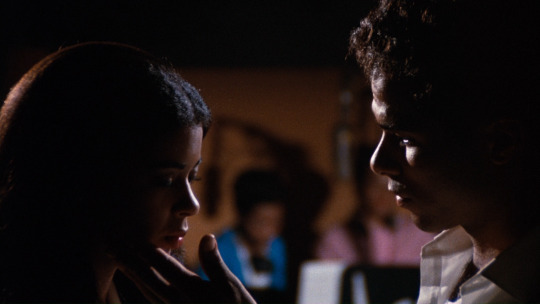

https://www.daaracarchive.org/2008/11/sparkle-1976.html
Stills from the movie Sparkle
15 notes
·
View notes
Photo

The Cotton Club
directed by Francis Ford Coppola, 1984
#The Cotton Club#Francis Ford Coppola#movie mosaics#Diane Lane#Richard Gere#Gregory Hines#Lonette McKee#James Remar#Nicolas Cage
10 notes
·
View notes
Text



Lonette McKee || Various Black & White Promotional Photography



#black hollywood#lonette mckee#the cotton club 1984#the cotton club#black actors#black and white#mixed race#mixedgirlmagic#80s movies
8 notes
·
View notes
Text

Cast of The Woman Of Brewster Place, 1989
Cicely Tyson, Oprah Winfrey, Jackée Harry, Robin Givens, Lynn Whitfield, Paula Kelly, Lonette McKee, Mary Alice, Olivia Cole
6 notes
·
View notes
Photo
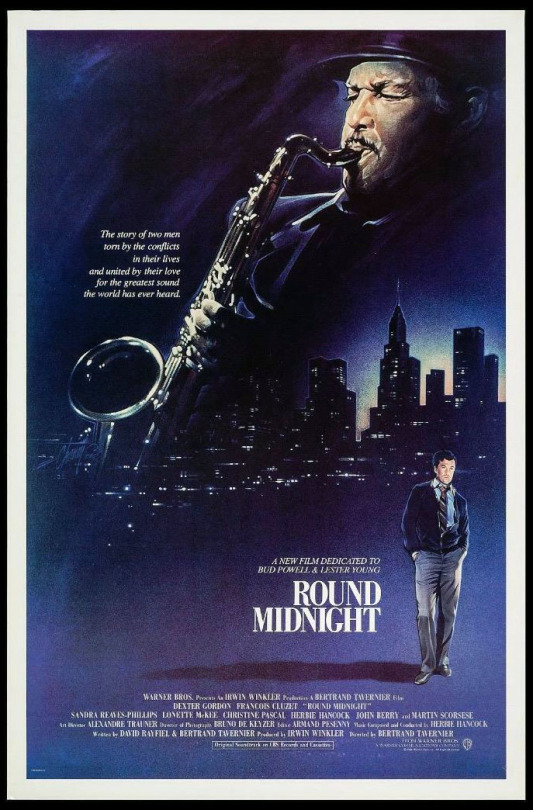
#round midnight#dexter gordon#françois cluzet#sandra reaves-phillips#lonette mckee#christine pascal#herbie hancock#john berry#martin scorsese#bertrand tavernier#1986
14 notes
·
View notes
Text
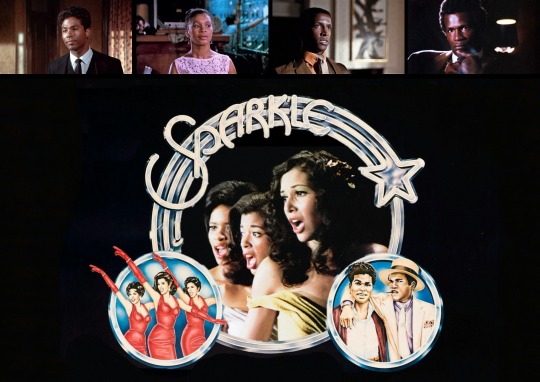
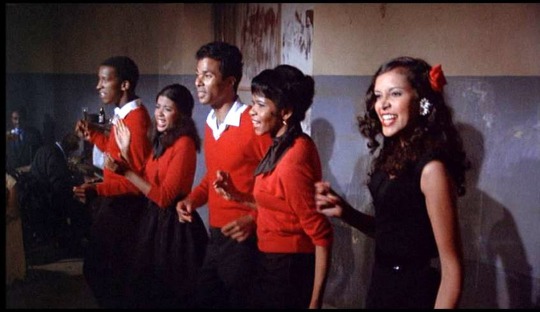
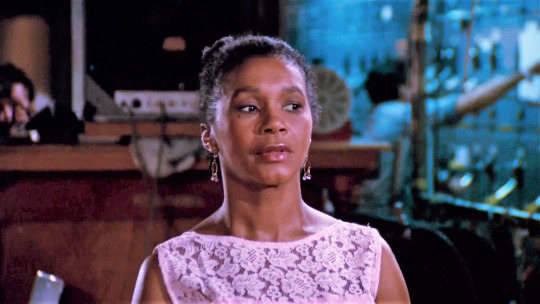
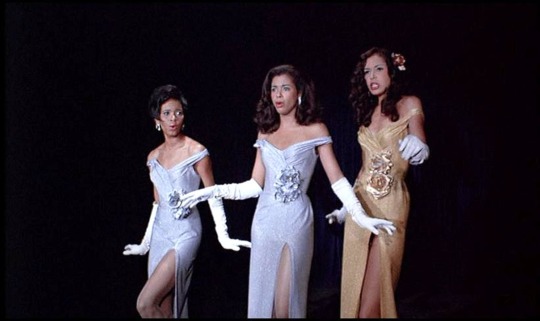
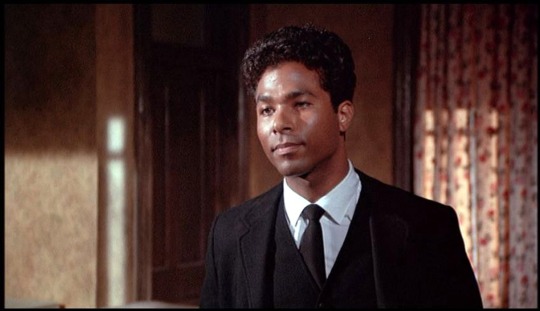
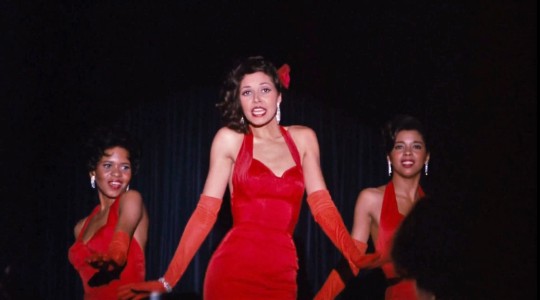


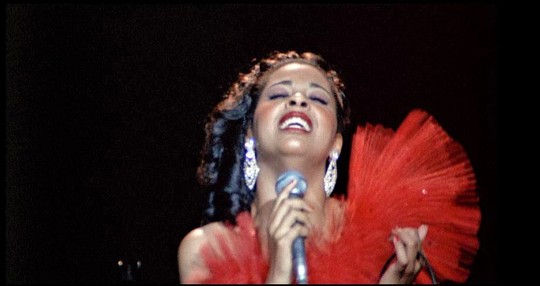
"SPARKLE" Released May 19, 1976
#lonette mckee#irene cara#dwan smith#sparkle#philip michael thomas#dorian harewood#mary alice#curtis mayfield
170 notes
·
View notes
Quote
And
Black as Satin is, and Sister laid out
yellow as a sheet of Detroit cake,
he's sugar all over her, a taste of helium
in the veins.
from Featuring Lonette McKee as Sister by Amaud Jamaul Johnson
6 notes
·
View notes
Text

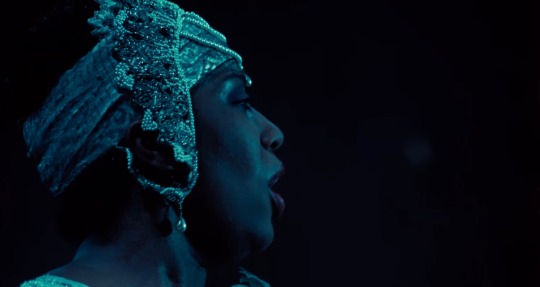
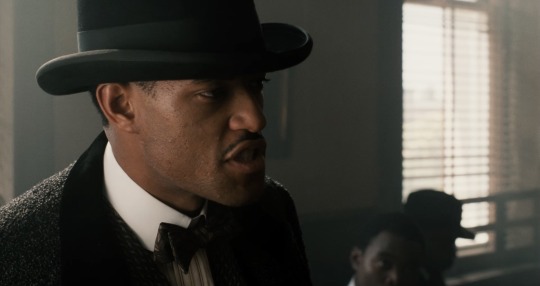

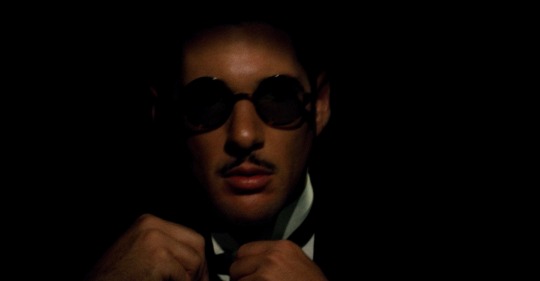

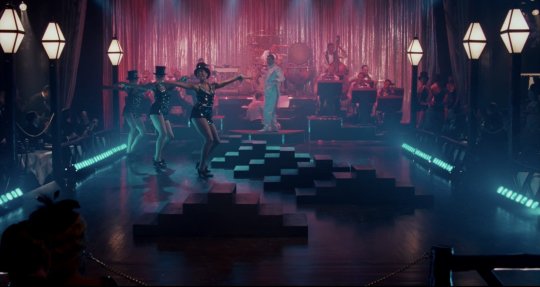

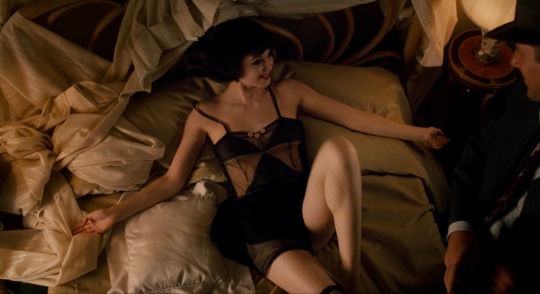




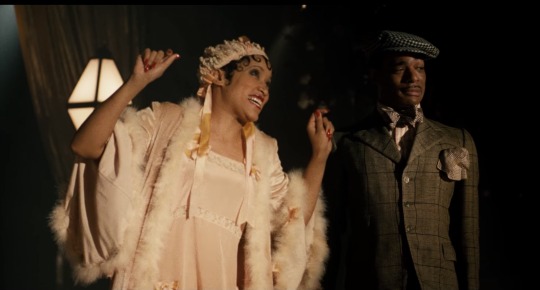


The Cotton Club Encore (1984 / 2019)
Director: Francis Ford Coppola
Cinematographer: Stephen Goldblatt
Starring: Gregory Hines, Richard Gere, Diane Lane, Lonette McKee, Bob Hoskins, James Remar, Nicolas Cage, Gwen Verdon, and Laurence Fishburne
#cotton club#francis ford coppola#80s film#richard gere#laurence fishburne#gregory hines#jackee harry#diane lane#nicolas cage#jazz age#1920s aesthetic#harlem renaissance#flappers#musicals#director's cut#classic film#80s cinema#musical film#jazz#period piece#period drama#cult classic#80s movies#1984#gangster film#gangster movies#mario puzo#lonette mckee#gwen verdon#bob hoskins
3 notes
·
View notes

